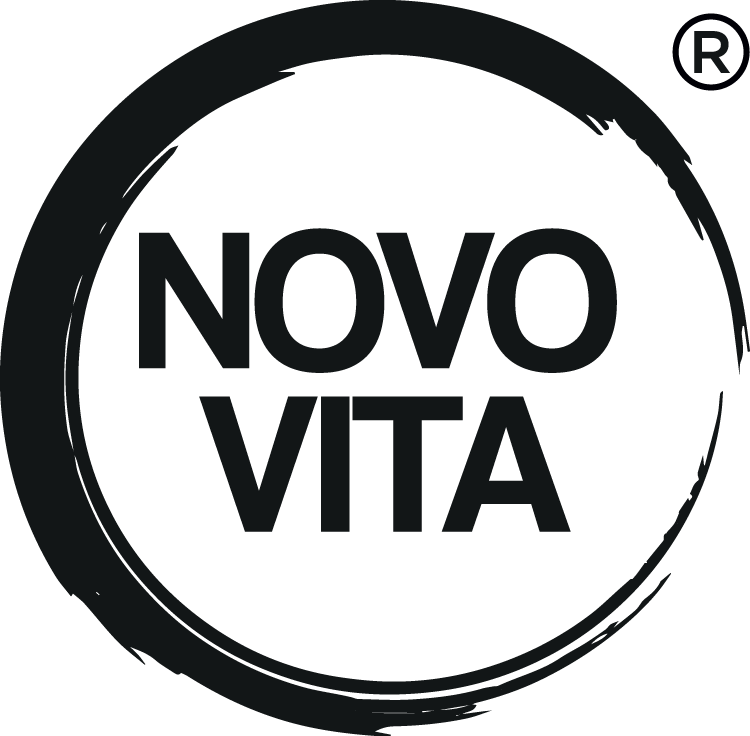Feed your gut and eat more fiber. You've probably heard it a lot of times. But do you know why fiber is so good for your health and what is the 5-a-day rule?
Dietary fiber is a complex carbohydrate that is found mainly in fruits, vegetables, whole grains and legumes and is practically not digested or absorbed by our body. Why?
Since we do not have enzymes to digest fiber, it passes relatively intact through our digestive tract straight to the colon, where it serves as a feed for your friendly gut bacteria and stimulates their growth and diversity!
Soluble Fiber
There are two types of fiber: soluble, which dissolves in water, and insoluble, which doesn't dissolve. Both types are equally important in maintaining our health and healthy microbiome, but still, they have some differences.
Soluble fiber dissolves water and forms a gel-like substance that slows down the absorption of glucose from carbohydrates, which helps to avoid blood sugar spikes and normalize cholesterol levels. Soluble fiber is found in oats, barley, legumes, vegetables, and fruits, including apples and oranges.
Insoluble Fiber
Insoluble fiber promotes better bowel movement, helping to improve the passage of material through your digestive system and can be specifically beneficial for those who struggle with constipation or irregular stools. It increases the stool bulk and assists its movement through the intestines.
Important to note that insoluble fiber has also been scientifically proven to reduce the risk of intestinal tract diseases, such as diverticulitis, constipation, haemorrhoids, and colorectal cancer. Insoluble fiber is found in whole-wheat flour, wheat bran, nuts, beans and vegetables, such as cauliflower, green beans and potatoes.
What about the 5-a-day rule?
The 5 a day rule comes is based on advice from the World Health Organization (WHO), which recommends eating a minimum of 400g (i.e. five portions) of fruit and vegetables per day (giving you the daily fibre norm of 25-30g of fibre) to lower the risk of serious health problems, such as heart disease, stroke and some types of cancer.
Fiber and the microbiome
Within our digestive tract, we have complex microbial communities that reside in the different parts of the gut and have a variety of functions, from aiding digestion and breaking down food and toxins to supporting immunity and assisting brain functions. The higher bacteria diversity, the better for our health. Imbalance of the normal gut microbiota can lead to dysbiosis, which is strongly linked to gastrointestinal conditions, such as irritable bowel disease, inflammatory bowel disease and increase your risk of developing a chronic disease, such as type 2 diabetes or obesity.
Because these helpful bacteria thrive by feeding off the food that we eat, it is essential to make sure we consume various foods that fuel beneficial bacteria and sustain their growth and diversity.
Eating a diet rich in plant-based fibre works as a ''compost'' for beneficial bacteria. Plant foods contain an indigestible fibre that your enzymes struggle to break down, and so they pass undigested to your colon, where probiotic bacteria feeds on them. By digesting the fibres, bacteria produce short-chain fatty acids, such as butyrate, which fuels the cells in your gut lining, improving the barrier between your gut and bloodstream and helping maintain immune homeostasis.
Novo Vita Husk Organic+

Want to reach your daily fiber intake?
Try Husk Organic+ by NovoVita – 100% pure and organic source of dietary fiber with as much as 2.3 g of fiber in a single serving of 3 g.
This psyllium husk powder (also known as flea seed husks) is an easily soluble and gluten-free fiber source derived from the seed of the Plantago ovata plant.
The dried plant has a neutral taste and is ground to a fine powder, which makes HUSK-Organic + ideal for mixing in smoothies, bowls or baking recipes to give them extra fiber content.
Find this product here: https://novovita.dk/products/husk-organic?_pos=1&_sid=42f6e196a&_ss=r
References:
https://www.who.int/news-room/fact-sheets/detail/healthy-diet
https://www.ncbi.nlm.nih.gov/pmc/articles/PMC7589116/
https://www.hsph.harvard.edu/nutritionsource/carbohydrates/fiber/

